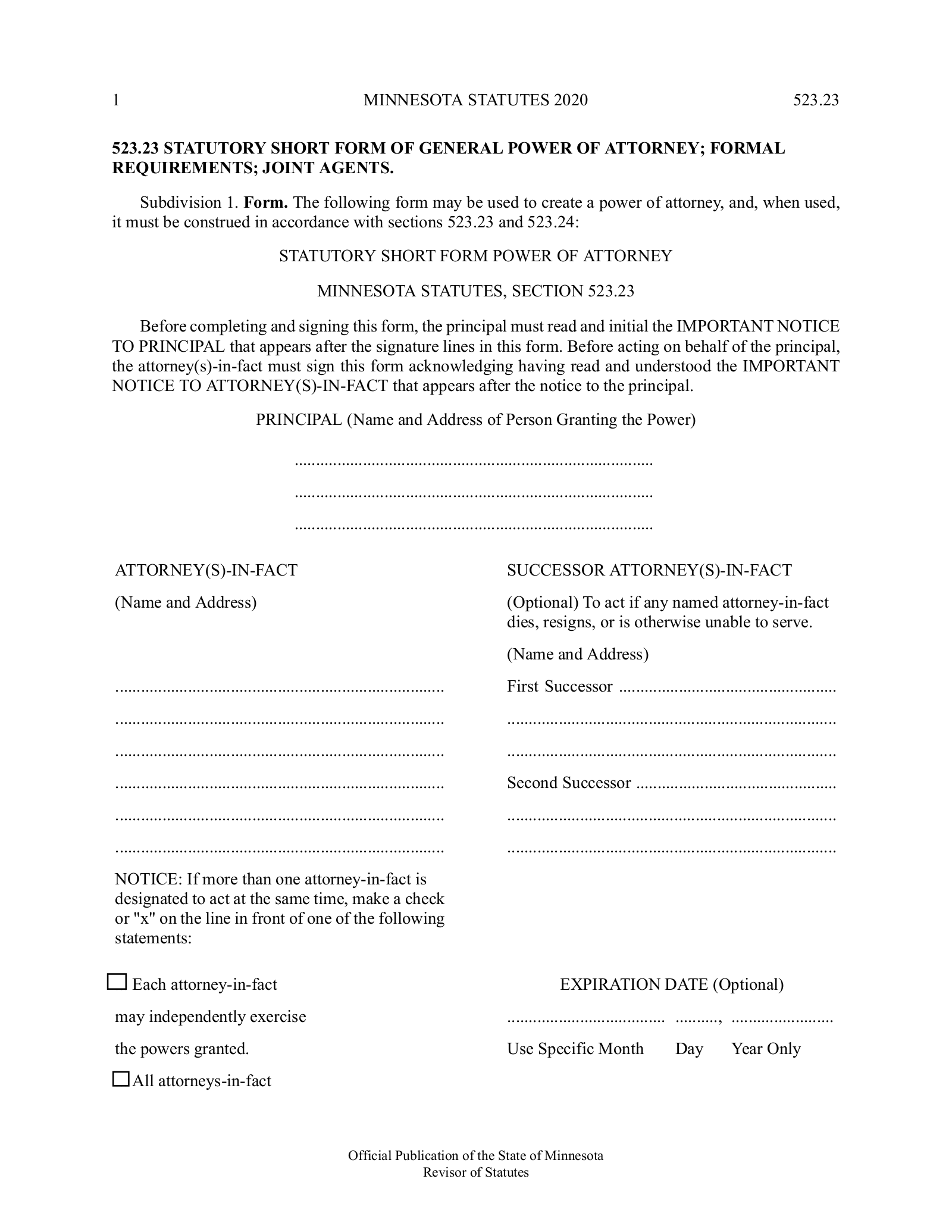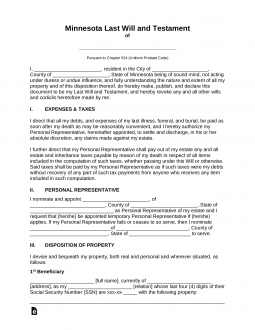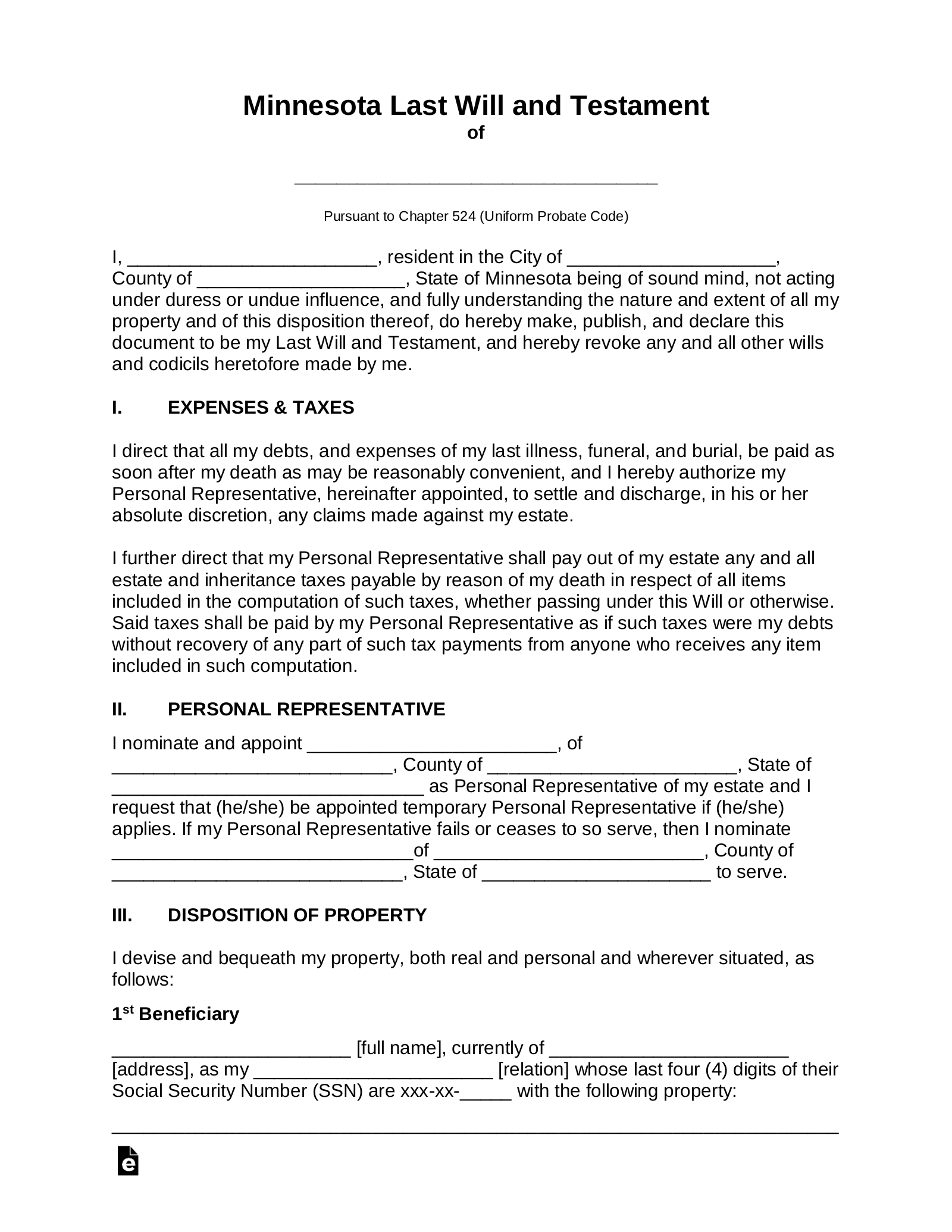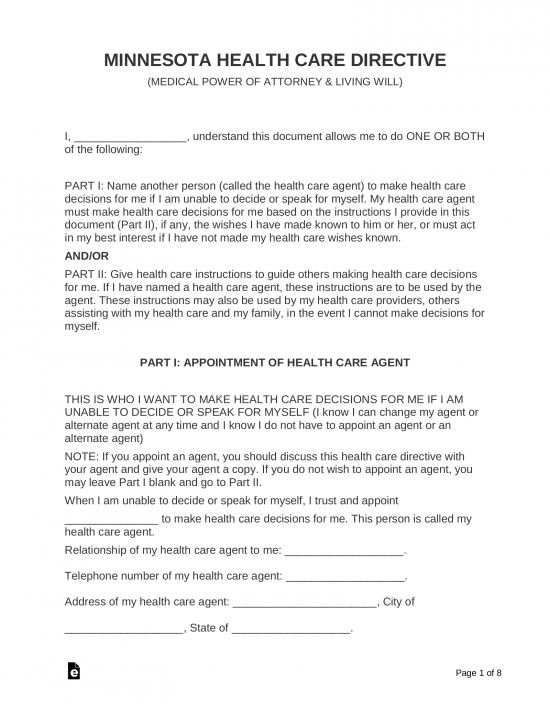Updated November 14, 2023
A Minnesota last will and testament is a legal document that allows a testator (the person to whom the will belongs) to outline instructions on how to distribute their assets among designated beneficiaries upon their death. Typically, a testator’s beneficiaries are spouses, children, friends, relatives, and even charitable organizations.
Signing Requirements
The signing must be witnessed by at least two individuals. [1]
State Definition
“Will” includes codicil and any testamentary instrument, which merely appoints an executor or revokes or revises another will.[2]
Related Forms
Download: PDF
 Durable (Financial) Power of Attorney
Durable (Financial) Power of Attorney
Download: PDF



